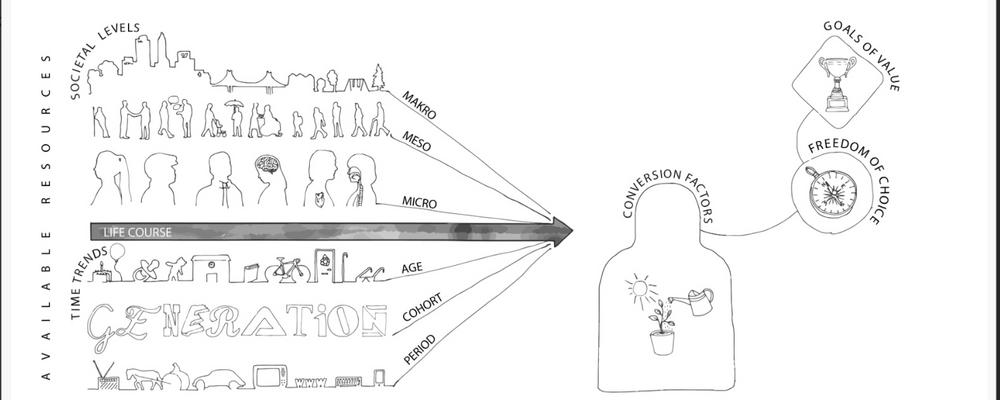
Capability - The theory behind our research
AgeCap has chosen the capability approach to focus on a more health and ability-related perspective rather than on disease and disabilities. The definition of capability used within AgeCap is based on the work of the philosopher and economist Amartya Sen: the individual´s ability to perform actions in order to reach goals he or she has reason to value.
Capability refers to an individual's ability to perform actions in order to reach the goals he or she has reason to value.
Factors on different levels of the person’s life form the basis for what that individual is capable of. Examples of factors on a macro level are laws and regulations that affect pensions, social security, labour market, home care, and health care. On a mesolevel, factors that influence capability include the context in which the daily life is embedded, e.g. socioeconomic, family life, social networks, caring facilities and obligations, health care and work. Finally, individual factors include genetic predispositions, neurobiology, personality, somatic, mental/cognitive health, life style and human capital (e.g education, acquired work skills, earning capacity).